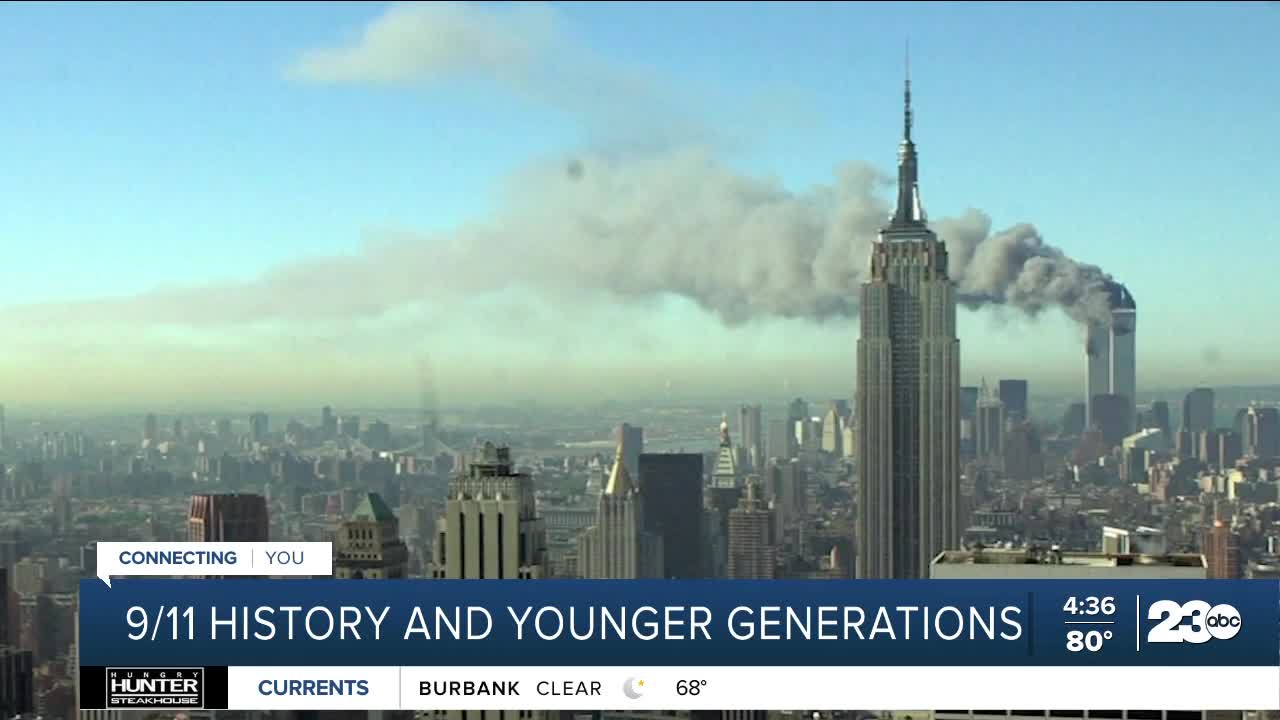BAKERSFIELD, Calif. (KERO) — Matthew Sabin wasn't even a year old when his mother turned on the television to see the twin towers falling in the 9/11 attacks.
"I remember the TV we had on our wall. And I think she said she was sitting on the edge of the bed when she was watching it happen on the TV," Sabin said.
An image so vivid and tragic, many remember exactly where they were when it happened. But as we approach the 20 year anniversary of the 9/11 attacks, there is now a whole generation of young adults and children who were either too young to remember or not even born yet.
"It's just very strange to me that such an important part of our history what 20 years later now is not really taught to the fullest extent that it could be," Sabin said.
Sabin said growing up in Bakersfield he felt like he knew about 9/11 in a historical sense, but not having experienced it in real-time and not learning more about it throughout his education he said he doesn't have the same emotional connection many older Americans have to this point in history.
"It would be a good idea to have I don't know a week or two in every school year that talks about modern American history from the events of September 11th, 2001, up until as recent as we can make it," he said.
Sarah Kalinay is a social studies teacher at Bakersfield High School. She's taught 9/11 history for 14 years now and she sees the shift in understanding from her more recent students.
"There's a lot to unpack there so you kind of have to split it up," she said. "It's just their normal and it's getting progressively more and more difficult to teach what life was before 9/11..you have to kinda consider how do you want these kids to process that day."
Kalinay says one of the difficulties with teaching such a significant event in recent u-s history is the fact that u-s history curriculum is taught in chronological order. When the anniversary of 9/11 arrives history classes are barely getting settled into early eras, so it's difficult to build a foundation for younger generations in the classroom.
That's why in the days coming up to the anniversary she focuses more on the emotional impacts of this point in history. Hoping to help her student understand how she and so many others feel on this day year after year.
"All of that background so we can have a more fulfilling conversation about the war itself and the fallout from 9/11," she said.
Then when they arrive at that point in time later in the year she tries to focus more on the background and historical impacts of 9/11, so her students will have a deeper understanding when they leave the classroom.
"I think that would kind of help students and younger people understand what's going on the news," Sabin said. "I think that having a really good resume and a solid base of what has happened in the last 20 years would help connect the younger kids with what they're seeing on TV or on the internet."



